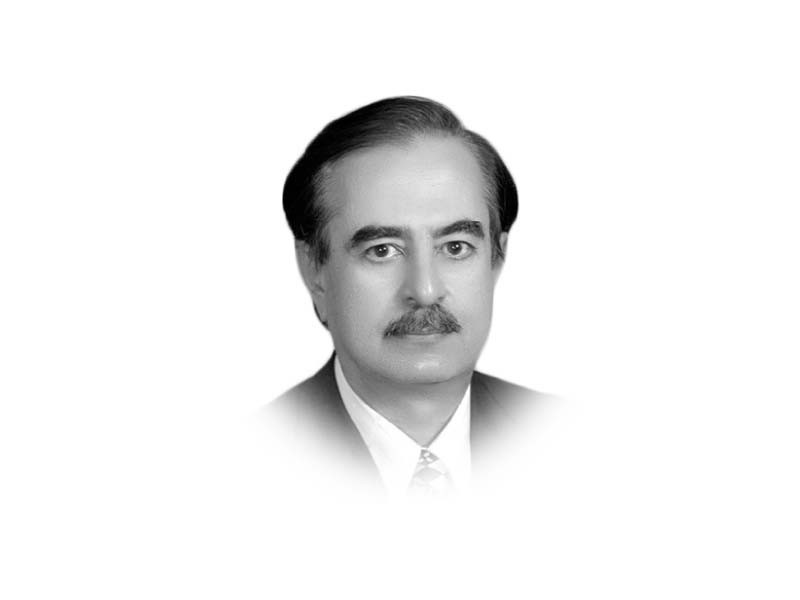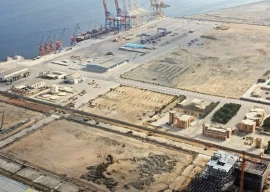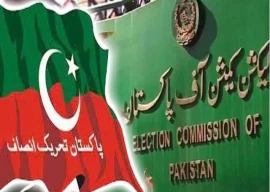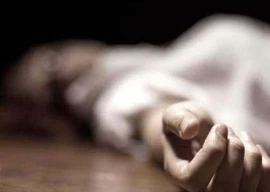
Historically an army, headed by a sovereign or ruler, often personally leading it, was more or less synonymous with the state. Militaries were and continue to be the most conspicuous representation of power in a state. Trials by military courts were indistinguishable from civil litigation. As democracy and rule of law evolved and armies increasingly came to be under the control of elected, representative governments, a distinction arose between military and civil laws and trials.
During contemporary times, objections to trial of civilians by military courts emanate and revolve around apprehensions that principles of free and fair trial may be put at risk in army trials.
Military trials, as the name suggests, partake of principles and considerations of establishment of security, order, authority and discipline in service of war as well as perpetuation of state authority and consequential social order. In modern contexts, freedom, democracy and lawful government are of equal, if not greater, import presupposing stable and sustained state existence.
On the other hand are arguments to the effect that attempted crimes against the military, designs at fomenting dissensions in the armed forces, endeavors at weakening of military morale and esprit de corp, creation of animus among a section of the people against the armed forces for achievement of specific political goals, attacks on military installations, posing physical threats to military munitions/equipment, diluting military discipline with politics are issues with grave implications for state security and sovereignty. Worldwide such cases are viewed as threats to state and social order and peace that are prerequisite for freedom, democracy, liberty and progress.
In cases involving threats to state verging upon treasonous or seditious intent, it is argued, no society or state has or can countenance conceding individual or societal rights possessing precedence over state prerogatives, since that is contrary to the implicit social contract underlying society or state wherein the people, in return for ensuring peace and order, give over the right to state to exercise monopoly over use of sanctioned violence for maintenance of life and lawful order.
Locke conceded the right of rebellion only in the extreme eventuality of personal life being perilously endangered. Guantanamo trials were justified on grounds of threat to state existence and the way of life of a people. Similarly the accused in the attack on US Capitol Hill on 6th Jan 2020 were sentenced to imprisonment of up to eighteen years in jail upon the principles of inviolability of fundamentals of a liberal, democratic polity that constitute bedrocks of the American ideal and Constitution.
Kanwar Pal Gill, Indian Punjab police chief in charge of Operation Black Thunder (May 1988), which eliminated the Khalistan insurgency, made a relevant point that a state cannot desist from using its authority to quell movements (or political forces) that threatens freedom, democracy and lawful governance. (paraphrased from AS Dulat: A Life in the Shadows, 2023, p. 62)
While announcing dismissal of a three star general and two senior officials, along with strict disciplinary action against other officers including Brigadiers, the military quarters made clear that they were proceeded against for “negligence of duties”. Although ‘mature restraint’ was definitely justified yet, short of using firepower, scant effort apparently or ostensibly was made to stop attackers ransacking military installations, casting doubts on true inclinations. The declaration that the “planners, conspirators and facilitators” and the “mastermind” of the attacks at seventeen different military sites throughout the country, carried out simultaneously, will not be spared at any cost, is a stark reminder of the seriousness with which any military would view attempts at its fragmentation, undermining its raison de etre as the last custodian of state survival.
The latest statement by the military authorities that the accused in military courts for 9th May attack on military installations will possess the right to lawyers of choice, the right to appeal in High Courts as well as the Supreme Court, could allay many apprehensions regarding fair trial. Notwithstanding this issue there is another aspect relating to morality as a contingent construct opposed to the Kantian view of the categorical imperative.
During the tenure of the previous government, 25 civilians were tried in military courts, with permission of the then civilian government, besides the Supreme Court staying release of 200 convicts of military courts ordered released by the Peshawar High Court on 26 June 2020.
In the International Court of Justice, defending the conviction of Kulbhushan Jadhav by a military court, the then Attorney General had pleaded that the Indian convicted spy had been granted all the safeguards of fair trial such as permission to hire a lawyer of choice and the right to appeal in higher courts. Consular access to the accused was conceded by the IHC.
What is the moral legitimacy of granting trial of civilians by military courts in one case but contesting it elsewhere? The circumstances of different cases are indeed relevant aspects to be taken into account. Yet serious issues remain requiring the appropriate balancing of individual freedoms vis-a-vis considerations of state inviolability and democracy. The right to appeal in High and Supreme Courts to the undertrial can obviate chances of abuse of requirements of free and fair trial.
But what is clear is that there is need for serious introspection on part of quarters involved in creating, like patronisation, cultivation and formation of the head of the Russian mercenary group Wagner in Russia, and launching a self-destroying project that came back to haunt its own creator, never to repeat costly experiments, expensive for and threatening the institution itself as well as democracy and the county at large, taking the polity a number of years back in economic, political and social terms. Perceived political dangers to institutional interests befogged making rational choices for long-term national good. Economic retardation and political diminution is perhaps far outweighed by the much graver regression in terms of social and political tolerance and increase in socially injurious and divisive polarisation that involves painstaking, long-term mental reformation towards communal consensus, inclusiveness, harmony and social solidity. Was this avoidable or was it in our stars? We could take a hopeful leaf from examples of nations changing their fortunes in the space of a lifetime while outliving repeated but avoidable historic pitfalls and precedents.
Published in The Express Tribune, July 14th, 2023.
Like Opinion & Editorial on Facebook, follow @ETOpEd on Twitter to receive all updates on all our daily pieces.















COMMENTS
Comments are moderated and generally will be posted if they are on-topic and not abusive.
For more information, please see our Comments FAQ